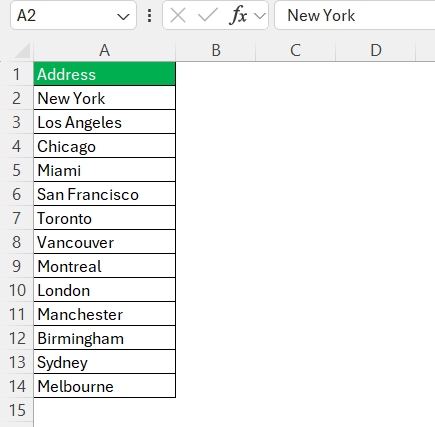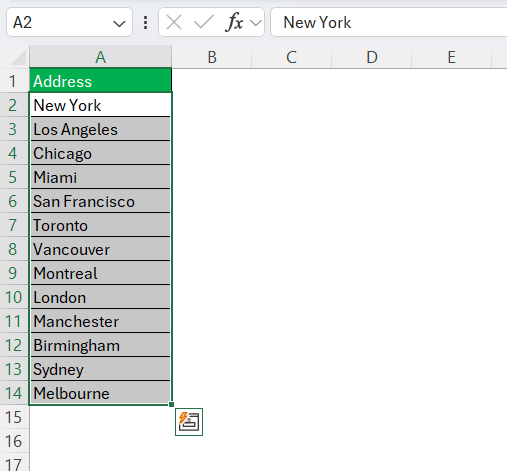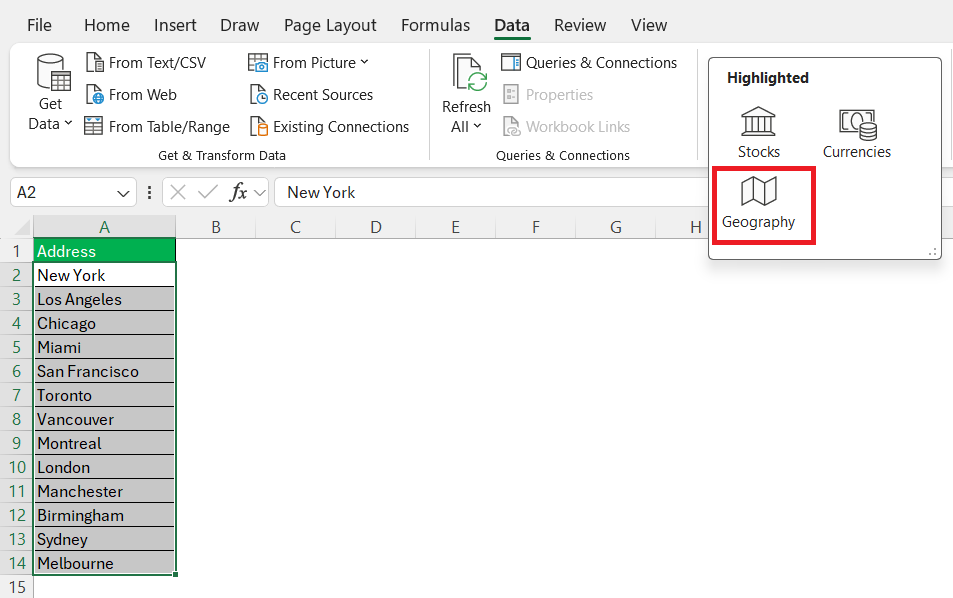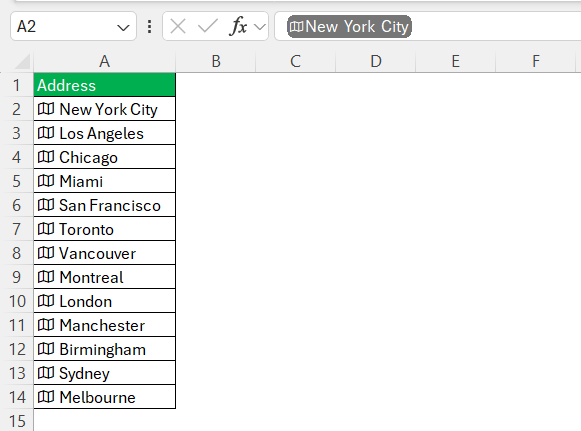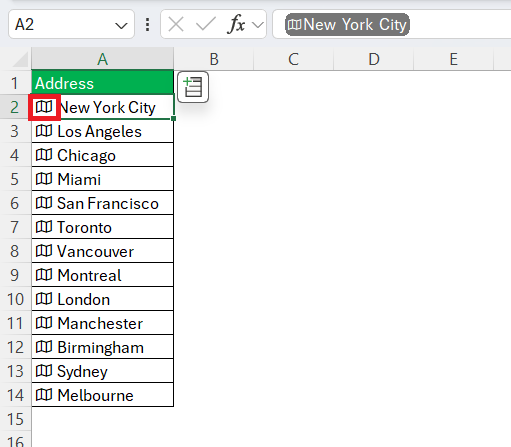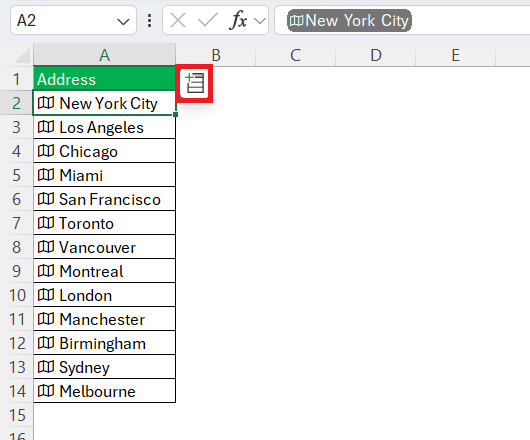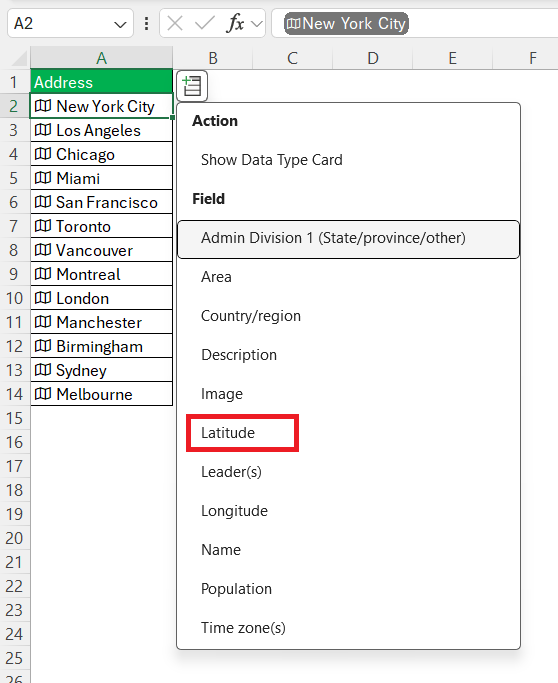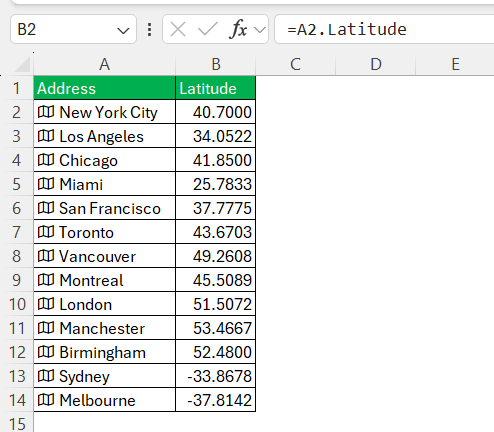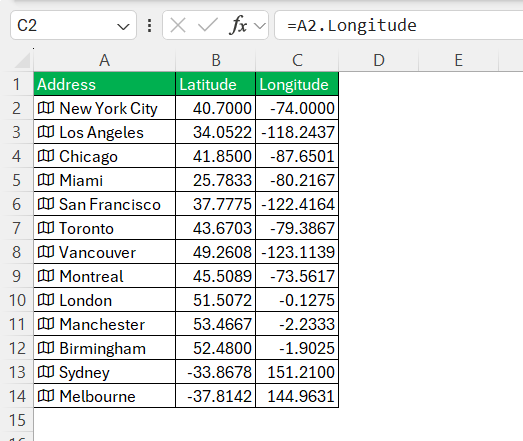As someone who works a lot with Excel for data cleaning and analysis, I recently discovered a super useful feature that I wish I knew earlier — converting addresses into Latitude and Longitude directly in Excel using Data Types.
Yes, you read that right. No complex formulas, no Google Maps API, no extra tools — just Excel doing the magic for me! Let me walk you through how to convert an address to lat long in Excel.
Key Takeaways:
- Excel’s Geography Data Type helps convert addresses to Latitude and Longitude easily.
- No need for Google Maps API or external tools for basic geocoding in Excel.
- Works best with a Microsoft 365 subscription.
- Useful for mapping data in Power BI, Google Maps, or reports.
Table of Contents
Introduction
Why Did I Need to Convert?
In one of my recent projects, I was working on a customer database where I had complete addresses of clients across various cities. My next step was to map these addresses on Google Maps or Power BI, and for that — I needed their Latitude and Longitude.
I could’ve used online tools or APIs, but then I found out that Excel itself has a built-in feature for this! Super handy.
The Secret? Excel’s Geography Data Type
Microsoft Excel (Office 365 or Microsoft 365 versions) has an amazing feature called Data Types. Data Type is a smart feature that allows you to convert plain text into rich, connected information.
Normally, when we enter something in Excel (like a name, number, or address), it stays as simple text or numbers.
But with Data Types, Excel understands the meaning of your data and connects it to online sources (like Bing or Microsoft Knowledge Graph) — so you can pull related information automatically.
The geography data type converts a location or address into a smart field. You can extract: Country, State, Latitude & Longitude, Population, Time Zone, Area, etc.
Steps to Convert Address to Lat Long
Enter the Addresses
I listed all my addresses in one column — simple text format.
For example:
Convert to Geography Data Type
STEP 1: I selected all the address cells.
STEP 2: Then I went to the Data tab on the ribbon.
STEP 3: And clicked on Geography under the Data Types section.
Excel recognized the locations and converted them into geography-linked cells.
Extract Latitude & Longitude
This was my favorite part.
STEP 1: I clicked on any cell with the map icon.
STEP 2: A small “Insert Data” icon (a square with an arrow) appeared.
STEP 3: Clicking it gave me multiple options like: Country/Region, Population, Latitude, Longitude, Time Zone and many more…
STEP 4: I selected Latitude first.
STEP 5: Excel inserted the value in the next column.
STEP 6: Then I repeated the same for Longitude.
Tips & Tricks
- Ensure addresses are clean and accurate for better recognition.
- Add city, state, and country for unclear addresses to improve results.
- Use Excel Table format for dynamic range and easier data handling.
- Extract other useful fields like Time Zone, Country, or Population as needed.
- Refresh Data Types if Excel doesn’t recognize new or updated addresses immediately.
FAQs
1. Does this feature work on all Excel versions?
No, this feature is available only in Microsoft 365 or Office 365 subscriptions with the latest updates. Older versions of Excel, like Excel 2016 or Excel 2019, do not support the Geography Data Type feature. Make sure your Excel is updated to the latest version to access this functionality.
2. Can I convert partial addresses like just city names?
Yes, you can convert city names or even country names using the Geography Data Type. However, for best results and higher accuracy, it’s recommended to enter complete addresses including street, city, state, and country. The more detailed the address, the better Excel can identify the correct location.
3. What if Excel shows the wrong location?
If Excel displays the wrong location after converting the address, try adding more specific details like the state, postal code, or country. This helps Excel differentiate between places with similar names. In some cases, you can also manually correct the address and refresh the data to get accurate Latitude and Longitude values.
4. Is there any limit on how many addresses I can convert?
There is no strict limit on the number of addresses you can convert using this feature. However, processing very large datasets may slow down Excel or require a stable internet connection because the feature fetches data online. It’s a good practice to work in smaller batches for smoother performance.
5. Can I update Latitude and Longitude if address changes?
Yes, you can easily update the Latitude and Longitude if the address changes. Simply right-click the cell with the Geography Data Type and select “Data Type > Refresh.” Excel will fetch the latest information for the updated address and refresh all linked fields like Latitude, Longitude, or Country.
John Michaloudis is a former accountant and finance analyst at General Electric, a Microsoft MVP since 2020, an Amazon #1 bestselling author of 4 Microsoft Excel books and teacher of Microsoft Excel & Office over at his flagship MyExcelOnline Academy Online Course.

